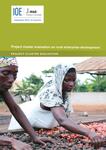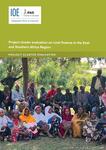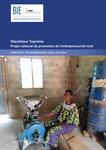Page Header

Downloads:
2
Hunan Agricultural and Rural Infrastructure Improvement Project
Overview
The Independent Office of Evaluation (IOE) has prepared a performance evaluation report on the Hunan Agricultural and Rural Infrastructure Improvement Project (HARIIP) implemented in the People’s Republic of China from 2012 to 2017. The evaluation found that the project contributed to rural development and poverty reduction for the 182,000 households in the remote areas targeted. This was achieved mainly through adoption of a strategy combining development of rural infrastructure, pursuit of diversified market-oriented agriculture and building villagers’ capacities in agriculture and infrastructure operations and maintenance. However, the project’s results in terms of reaching the rural poor and the women among them were less successful, partly due to the absence of a tailored approach. Any benefit derived by lower-income families tended to be the form of low-paid, unskilled work; as this is less likely to foster economic and self-development capacities, questions arise as to the sustainability of the project’s impact on income generation for the poor. Moving forward, the evaluation recommends continuing support to diversified agricultural production through the IFAD-supported follow-up project, developing tools to increase households’ access to project activities, redefining the approach to gender equality and women’s empowerment, and orienting innovations towards project implementation processes.Report Details
| Year Published | |
| Type | |
| Joint | No |
| Partner/s | N/A |
| Consultant name | |
| Agency Focal Point | Chitra Deshpande |
| Focal Point Email | c.deshpande@ifad.org |
| Managed by Independent Evaluation Office | Yes |
| Country/ies |
YOU 'RE READING
Hunan Agricultural and Rural Infrastructure Improvement Project








